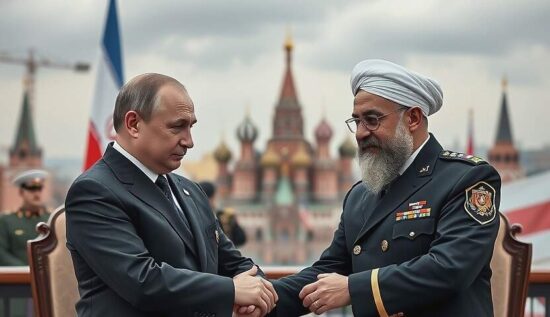Moscow, January 17 – Russian President Vladimir Putin and his Iranian counterpart, Ebrahim Raisi, signed a comprehensive strategic partnership agreement in Moscow, following a meeting at the Kremlin. The bilateral treaty replaces the 2001 agreement on the foundations of relations and the principles of cooperation between Russia and Iran, which was automatically extended every five years. However, the two countries have concluded that the existing document no longer meets the new geopolitical realities and the higher level of cooperation they aim for.
The Iranian Ambassador to Russia, Kazem Jalali, explained that the new treaty consists of a preamble and 47 articles, which will outline the relations between the two countries in all areas for at least the next 20 years. The diplomat told the Iranian News Agency, IRNA, “The foreign ministers of the two countries have agreed that the Islamic Republic of Iran will prepare a draft. We have prepared the draft and handed it over to the Russian side.”
It took around three years to finalize the agreement, with “numerous changes made until a consensus was reached” according to the ambassador.
Iranian and Russian officials emphasized that the document does not foresee the creation of a military alliance. As Iranian Foreign Minister Hossein Amir-Abdollahian noted, “The agreement covers cooperation in the fields of security and defense, but it does not aim to establish a military alliance.”
Russia has already signed two intergovernmental agreements in the security sector last year: a comprehensive strategic partnership agreement with the Democratic People’s Republic of Korea, which provides that one party will offer military assistance to the other in the event of an attack; and an agreement with Belarus on security guarantees within the Union State, which includes the possibility of deploying all military forces, including tactical nuclear weapons, in the event of a threat to the Union State.





